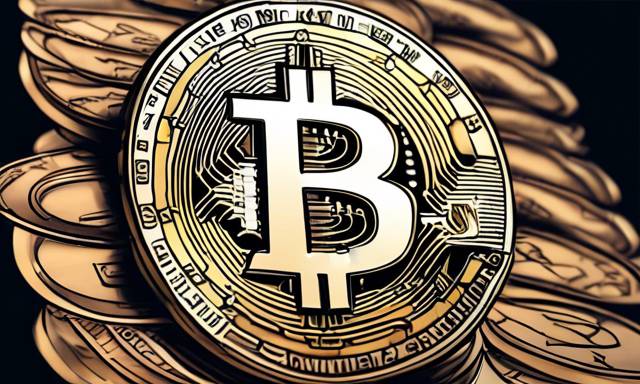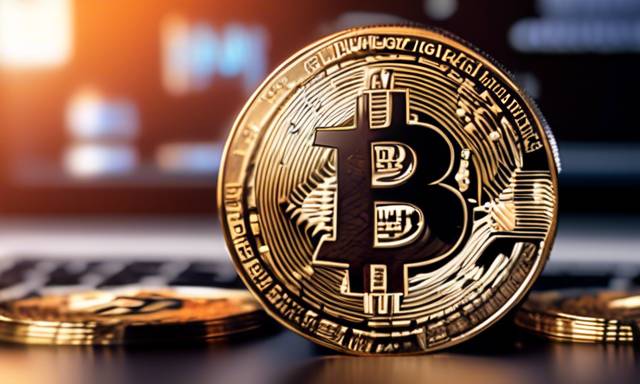Understanding the Coinbase Controversy
Hey there! So, I’ve been diving into the recent buzz about Coinbase and its CEO, Brian Armstrong, and thought it’d be fun to chat about it. You know how in the world of crypto, things can spiral out of control with rumors and speculation? Well, this time, we’ve got a situation involving “paper Bitcoin,” BlackRock, and some claims from a lesser-known entity called cbBTC. Trust me; this is juicy stuff.
What’s the Scoop?
In a nutshell, Brian Armstrong recently took to social media to address some pretty serious allegations. Some folks began to chatter about Coinbase allegedly selling “paper Bitcoin” to BlackRock. Now, for those who aren’t super deep into the crypto ocean, “paper Bitcoin” usually refers to representations of Bitcoin that aren’t backed by the actual cryptocurrency—think of it like having a ticket to a concert but no actual access to the event. Nobody wants that feeling, especially not investors.
Brian firmly denied these claims, arguing that Coinbase is only dealing in real, genuine Bitcoin. He emphasized that they are a legitimate platform dedicated to staying honest and transparent. And let me tell you, in the crypto world, trust is like gold—it’s essential.
The BlackRock Connection
On the surface, there’s nothing overly suspicious about a partnership with BlackRock. They’re one of the world’s leading investment management firms, handling trillions in assets. Imagine being friends with the coolest kid in school—everyone wants to be associated with that kind of crowd!
- Key Points to Remember:
- BlackRock’s entry into crypto signals growing institutional interest.
- Partnerships in finance can legitimize the crypto industry more broadly.
But here’s where things got a bit murky. Some say that the idea of “paper Bitcoin” could pop up again, much like that friend who lends you a book and never asks for it back—it might seem harmless, but somewhere, it leaves a gnawing doubt about what you actually own.
cbBTC Claims
Now, let’s pivot to cbBTC. I know, not everyone has heard of them—think of them as the little-known cousin at the family reunion. They recently made some claims around this topic that irked several parties. The gist? They suggested that Coinbase was somehow mishandling or misrepresenting Bitcoin assets. It’s like calling a chef a fraud because they didn’t share their secret ingredient, right?
In the crypto community, where integrity goes a long way, such words can hit hard. If you’ve ever invested in something due to misinformation, you know that gut-wrenching feeling—it’s downright unsettling.
The Bigger Picture
But let’s step back. This isn’t just about Coinbase or Brian Armstrong. It touches on broader themes in the crypto world like regulation, trust, and the nature of ownership. What does it mean to own something if it’s not tangible? I mean, just look at NFTs! It’s like we’re living in a digital age where abstract concepts take precedence over what used to be physical.
Here are some things to consider:
- Trust Matters: Whether it’s Coinbase, Binance, or any other platform, trust is built over time, and any allegation can shake that foundation.
- Investor Awareness: As investors, we need to be vigilant. It’s crucial to distinguish between legitimate claims and mere conjecture. Remember that time someone tried selling you a bridge? Yeah, let’s avoid that.
- Understanding the Landscape: From BlackRock’s influence to emerging technologies like cbBTC, what’s happening right now can shape the future of our investments. Keep your eyes peeled—I’m telling you; it’s going to be an interesting ride!
Wrapping It Up
So, as we unravel this unfolding story, I can’t help but feel that we’re just scratching the surface of something much bigger. Remember that old saying, “Stay curious?” It applies here more than ever. Each rumor, each denial, and each partnership has the potential to shift the tides in this wave of cryptocurrency.
You might be tempted to play it safe and say, “I’ll just sit this one out,” but think about that—where would you be if you never took a leap of faith or made an investment based on your gut feeling?
So let me leave you with this thought: In a world filled with uncertainty, are we ready to give our trust to platforms that promise transparency while navigating a sea of paper and digital assets?
Let’s chat about it next time over coffee. What do you think—are you in or out?





 By
By
 By
By
 By
By
 By
By
